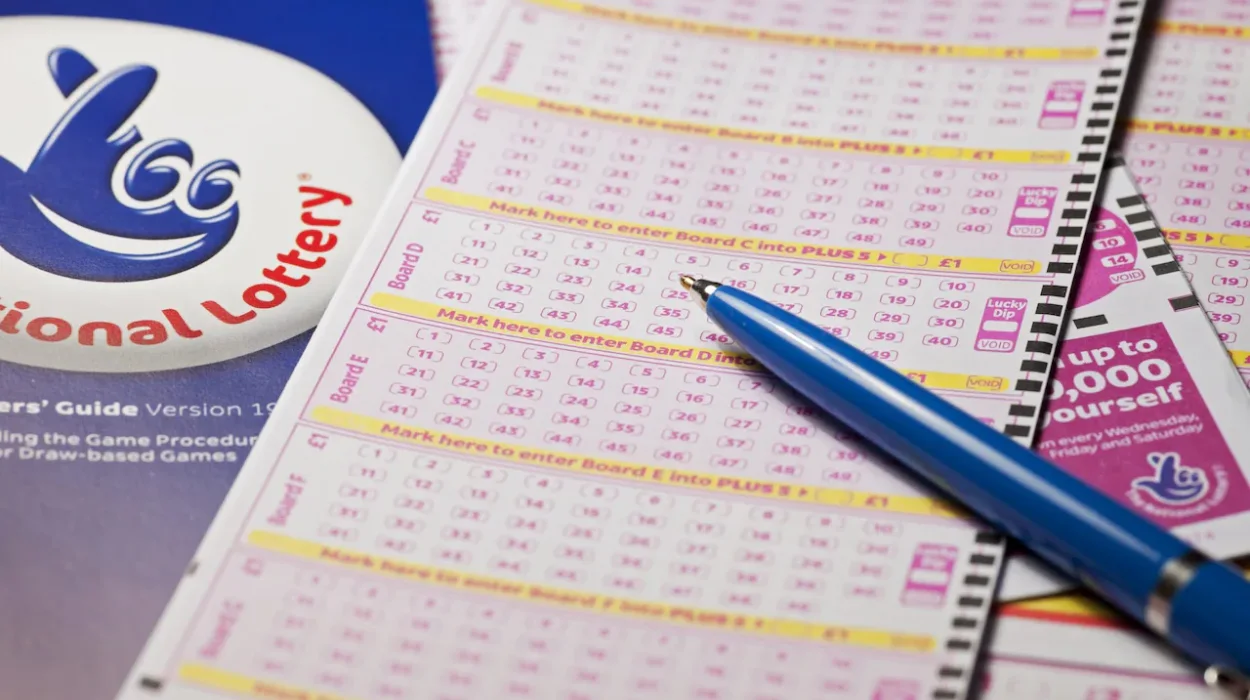UK (Parliament Politics Magazine) – Chancellor Rachel Reeves faces an £8bn shortfall as Allwyn’s National Lottery stalled ticket sales threaten public finances and charity funding.
As reported by The Telegraph, falling National Lottery sales could risk a multibillion-pound shortfall, adding pressure on Rachel Reeves’ budget plans.
What figures show about Allwyn’s £8bn shortfall for the Treasury?
Official figures show the National Lottery, run by new operator Allwyn, is projected to deliver around £84bn in sales over the next ten years.
The forecast, based on current trends, shows the operator may achieve just over 50% of the £152bn pledged in its winning bid for Britain’s largest public contract.
During Allwyn’s tenure, set to run until 2034, the Treasury is expected to collect £10bn in taxes. The company promised £18.2bn to public finances, but projections show an £8bn shortfall.
Each National Lottery ticket and scratch card contributes 12p in tax per pound sold.
Analysts say it remains unclear whether the Treasury or the Office for Budget Responsibility has factored in Allwyn’s financial performance.
The potential shortfall from another major scheme will increase pressure on Ms Reeves ahead of her critical Budget next month.
HMRC figures show lottery duty has been steady or declining, returning to 2019 levels.
What did Lord Don Foster say about Allwyn’s performance?
Lord Don Foster, head of Peers for Gambling Reform, stated,
“It’s deeply concerning that Allwyn are not delivering what they promised to do.”
He added,
“I remain [concerned] about their ability to deliver what they promised, even with their new operating system.”
Concerns over Allwyn’s lottery licence and shortfall
Allwyn, which assumed control of the National Lottery, pledged to invest in technology and marketing to revive ticket sales. The company began the first phase of its IT upgrade, claiming it will drive growth.
The award of Allwyn’s licence is under High Court scrutiny, highlighting potential public finance risks.
A trial will start on Thursday over Richard Desmond’s £1.3bn claim against the Gambling Commission, alleging the quango mishandled its licence bidding.
The Czech gas billionaire Karel Komárek owns Allwyn, whose failure to meet targets risks charities and sports that depend on 25% of lottery sales.
The operator promised to raise donations from £17.9bn under Camelot to £38bn, or £3.8bn a year, but only £1.8bn went to good causes in its first year.
According to Allwyn’s figures, slow growth of 0.74% per quarter means the lottery may deliver around £21bn over its licence, leaving a potential £17bn shortfall.
The House of Lords has dismissed the operator’s spending pledges, calling them “fanciful.”
Viscount Chandos asked Gambling Minister Baroness Twycross whether Allwyn had misled the Gambling Commission during the licence bidding process.
Ms Twycross said the Commission maintained “direct oversight” of Allwyn and held meetings with executives to ensure delivery.
Allwyn’s views on its commitment to good causes
A spokesman for Allwyn stated,
“Despite the challenges of the transition period, we are on track to double the contribution to good causes from £30m a week to £60m a week by the end of the 10-year licence in 2034.”
They added,
“Unlike previous licences, this one ties our income to a fixed percentage of the money returned to good causes, so we are completely aligned with the objective of increasing contributions to good causes.”
Treasury’s views on the OBR’s forecasts
A Treasury spokesman stated,
“We aren’t going to give a running commentary on the OBR’s forecasts. The OBR have been commissioned for a full economic and fiscal forecast that will be published on Nov 26.”
NIESR warns about the upcoming tax increases
Economists predict further tax rises in the Chancellor’s Budget to cover a £50bn shortfall in public finances.
The National Institute of Economic and Social Research warns the Chancellor risks meeting borrowing targets amid an “impossible trilemma.”
It added, she cannot
“simultaneously meet her fiscal rules, fulfil spending commitments and uphold manifesto promises to avoid tax rises for working people. At least one of these will need to be dropped.”
Rachel Reeves’ stance on Britain’s economy
Rachel Reeves stated,
“Britain’s economy isn’t broken. But I know it’s not working well enough for working people. Bills are high. Getting ahead feels tougher. You put more in, get less out. That has to change.”
She added,
“We’ve got huge potential – world-leading brands, dynamic industries, brilliant universities, and a skilled workforce. We’re a global hub for trade. Fixing the foundations has been my mission this past year. We raised the minimum wage for three million people.”
Key announcements in the UK’s 2025 Autumn Budget
The UK’s 2025 Autumn Budget, presented by Chancellor Rachel Reeves, is scheduled for Wednesday, 26 November 2025.
The Budget may include a strong focus on fiscal discipline to meet government rules. It aims for balanced day-to-day spending by 2029-30 and reducing debt as a share of GDP by the same year.
There will be no increases in income tax, VAT, or employees’ National Insurance, but possible measures include freezing tax bands and raising “sin” taxes on gambling, tobacco, alcohol, and unhealthy foods.
The Budget may introduce NI on rental income, targeting landlords to raise extra revenue without increasing direct taxes on workers.


